Forgiveness in Action
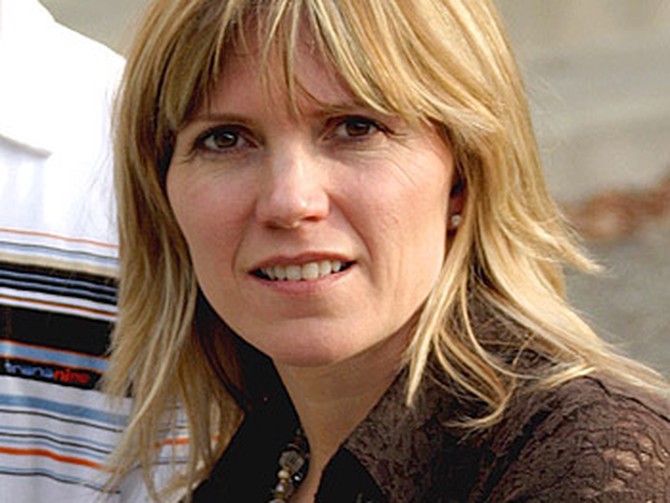
Katy, 45, Victoria, Canada
I believe when bad things happen we have a moral responsibility, simply because we walk this earth together, to roll up our sleeves and clean up. Sometimes we may find ourselves working alongside the very person that caused the harm. When this occurs, there is a powerful opportunity for transformation.
My life was ripped apart on New Year's Eve in 1997. Bob McIntosh, my husband of nine years, left our dinner table to check on the home of vacationing neighbors after we became aware their teenage son was having a party. Bob never came home. He walked into a mob of 200 drunk and out-of-control young people. A punch from an angry youth put Bob on the floor unconscious. Kicks to his head delivered by a 20-year-old named Ryan caused a fatal brain hemorrhage. I was left widowed with 4-year-old twins.
As the story made headlines, I became increasingly aware I was not feeling the anger and vengeance people expected of me. I did not want my life or the lives of my children to be defined by Bob's senseless death. Refusing to be a victim shrouded in hatred and negativity, I chose instead to be inspired by the full and engaged way Bob lived. We moved forward in a positive way and built a new life.
It took five years and an undercover investigation before an arrest was made. I stunned police by asking to meet Ryan face-to-face. I did not expect that the traditional justice system would give me a voice or the healing I needed. I wanted to look Ryan in the eye, tell him what Bob's death had been like for me and for my family, and how hard we had worked to rebuild our lives. I challenged Ryan to do the same, and promised I would stand by him if he stepped up and accepted responsibility for his actions.
Through a restorative justice reconciliation process, I met again with Ryan. My fear was gut-wrenching but humanity surfaced on so many levels. Ryan was someone's son, bullied as a child. He had fallen into a spiral of substance use and violence in a twisted effort to find identity. Our lives were entwined whether we liked it or not—we connected through our brokenness.
I listened to the whispers of my heart and was able to forgive Ryan. Forgiveness was not a cop-out, not soft and most definitely not about forgetting. Forgiveness gave me a voice, an opportunity to choose a legacy of healing and hope. I began speaking to youth and their parents about bullying, social responsibility around alcohol and other drugs, about violence and about moving forward after unspeakable loss.
Ryan and I now stand together speaking to audiences in schools, community halls and prisons. Forgiveness has been transformational—it ended the downward spiral of Ryan's life and set me free. Forgiveness gave me a life filled with grace and possibility, and for that I am deeply grateful.
I believe when bad things happen we have a moral responsibility, simply because we walk this earth together, to roll up our sleeves and clean up. Sometimes we may find ourselves working alongside the very person that caused the harm. When this occurs, there is a powerful opportunity for transformation.
My life was ripped apart on New Year's Eve in 1997. Bob McIntosh, my husband of nine years, left our dinner table to check on the home of vacationing neighbors after we became aware their teenage son was having a party. Bob never came home. He walked into a mob of 200 drunk and out-of-control young people. A punch from an angry youth put Bob on the floor unconscious. Kicks to his head delivered by a 20-year-old named Ryan caused a fatal brain hemorrhage. I was left widowed with 4-year-old twins.
As the story made headlines, I became increasingly aware I was not feeling the anger and vengeance people expected of me. I did not want my life or the lives of my children to be defined by Bob's senseless death. Refusing to be a victim shrouded in hatred and negativity, I chose instead to be inspired by the full and engaged way Bob lived. We moved forward in a positive way and built a new life.
It took five years and an undercover investigation before an arrest was made. I stunned police by asking to meet Ryan face-to-face. I did not expect that the traditional justice system would give me a voice or the healing I needed. I wanted to look Ryan in the eye, tell him what Bob's death had been like for me and for my family, and how hard we had worked to rebuild our lives. I challenged Ryan to do the same, and promised I would stand by him if he stepped up and accepted responsibility for his actions.
Through a restorative justice reconciliation process, I met again with Ryan. My fear was gut-wrenching but humanity surfaced on so many levels. Ryan was someone's son, bullied as a child. He had fallen into a spiral of substance use and violence in a twisted effort to find identity. Our lives were entwined whether we liked it or not—we connected through our brokenness.
I listened to the whispers of my heart and was able to forgive Ryan. Forgiveness was not a cop-out, not soft and most definitely not about forgetting. Forgiveness gave me a voice, an opportunity to choose a legacy of healing and hope. I began speaking to youth and their parents about bullying, social responsibility around alcohol and other drugs, about violence and about moving forward after unspeakable loss.
Ryan and I now stand together speaking to audiences in schools, community halls and prisons. Forgiveness has been transformational—it ended the downward spiral of Ryan's life and set me free. Forgiveness gave me a life filled with grace and possibility, and for that I am deeply grateful.
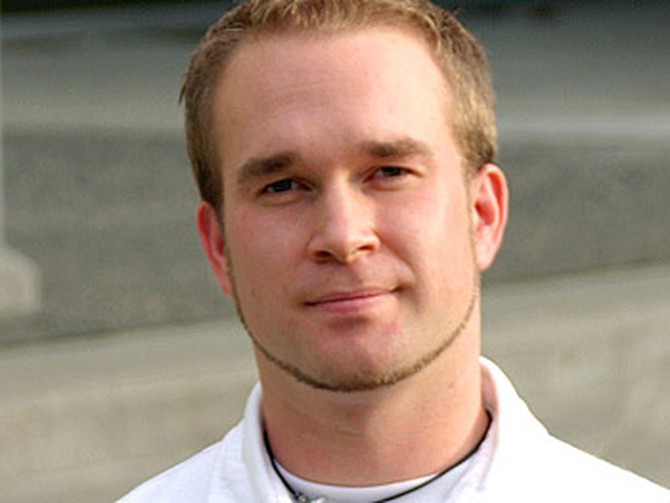
Ryan, 30, Vancouver, Canada
I grew up in a small town and was bullied as a child. Eventually I started hanging around with a group whose lifestyle impressed me. For the first time I felt accepted. By the age of 16, we were experimenting with alcohol and drugs and the partying began. Unfortunately I started getting into trouble with the local police and was involved in three separate alcohol-related car crashes. A good friend then died in a car accident, which totally devastated me.
On New Year's Eve 1997, a friend was throwing a party. His father was away. There were about 200 people there, and with so much drugs and alcohol around, fights started breaking out. When a stranger came up the stairs and asked us all to leave, my friend hit him. He fell to the ground and I kicked him four times in the head. After that, I moved on to another party, not knowing I'd just made the worst mistake of my life.
Throughout the investigation, the secret of my crime began to destroy me. I became depressed and introverted. I could well have committed suicide if, after four years, I hadn't broken my silence. My family was devastated. Having admitted my guilt, I wanted to apologize face-to-face for what had happened. I wrote a letter to Katy and her children apologizing for what I'd done. I also asked a police officer if I could meet with Katy. I'd read about Katy in the papers but never expected her forgiveness. If I put myself in her shoes, I think I would have hated the person who had done what I'd done to her.
Katy's forgiveness is the most incredible thing that anyone has ever given me. It changed my life. There's trouble every day in prison, offers of drugs and the threat of fights. I did not give in. My life would still be full of anger and violence if not for Katy.
The big question I still ask myself is, "Why did you do this?" After serving three years in prison, I realize how angry I was. My anger escalated from years of being teased, bottling up my emotions and feeling a need to express my senseless "bravado" to my "friends" out of loyalty to them. I was fearful of not being accepted. However, I make no excuses.
Doing jail time was easy compared to the guilt I'll have to live with for the rest of my life.
Now since I'm out of prison, I truly can see what Katy's forgiveness has given me. Forgiveness set me free from a "mind imprisonment." It has also given me a bright future with a woman who I truly love so much and a better relationship with my family—which has changed my outlook on life. Katy's forgiveness has built a community which has become a support network for me. I am slowly moving on with my life and trying to forgive myself.
I grew up in a small town and was bullied as a child. Eventually I started hanging around with a group whose lifestyle impressed me. For the first time I felt accepted. By the age of 16, we were experimenting with alcohol and drugs and the partying began. Unfortunately I started getting into trouble with the local police and was involved in three separate alcohol-related car crashes. A good friend then died in a car accident, which totally devastated me.
On New Year's Eve 1997, a friend was throwing a party. His father was away. There were about 200 people there, and with so much drugs and alcohol around, fights started breaking out. When a stranger came up the stairs and asked us all to leave, my friend hit him. He fell to the ground and I kicked him four times in the head. After that, I moved on to another party, not knowing I'd just made the worst mistake of my life.
Throughout the investigation, the secret of my crime began to destroy me. I became depressed and introverted. I could well have committed suicide if, after four years, I hadn't broken my silence. My family was devastated. Having admitted my guilt, I wanted to apologize face-to-face for what had happened. I wrote a letter to Katy and her children apologizing for what I'd done. I also asked a police officer if I could meet with Katy. I'd read about Katy in the papers but never expected her forgiveness. If I put myself in her shoes, I think I would have hated the person who had done what I'd done to her.
Katy's forgiveness is the most incredible thing that anyone has ever given me. It changed my life. There's trouble every day in prison, offers of drugs and the threat of fights. I did not give in. My life would still be full of anger and violence if not for Katy.
The big question I still ask myself is, "Why did you do this?" After serving three years in prison, I realize how angry I was. My anger escalated from years of being teased, bottling up my emotions and feeling a need to express my senseless "bravado" to my "friends" out of loyalty to them. I was fearful of not being accepted. However, I make no excuses.
Doing jail time was easy compared to the guilt I'll have to live with for the rest of my life.
Now since I'm out of prison, I truly can see what Katy's forgiveness has given me. Forgiveness set me free from a "mind imprisonment." It has also given me a bright future with a woman who I truly love so much and a better relationship with my family—which has changed my outlook on life. Katy's forgiveness has built a community which has become a support network for me. I am slowly moving on with my life and trying to forgive myself.
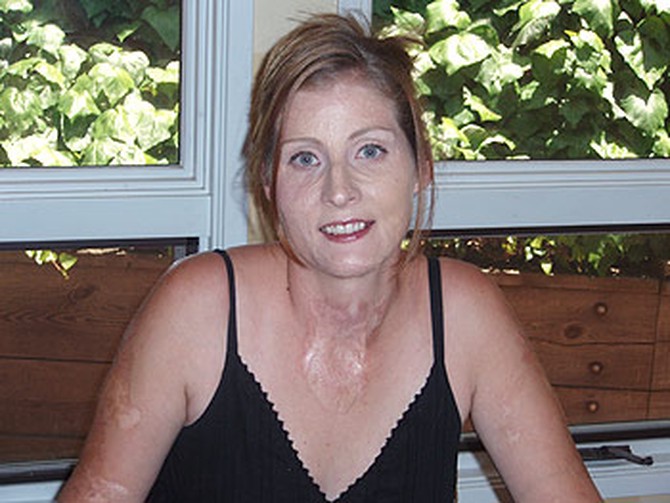
Jennifer
Being permanently and horribly scarred at the age of 12 over my face, neck, arms, hands and the entirety of my back due to severe second and third degree burns makes it difficult to forgive when my own sister is the reason for the injury.
At 2 a.m., after dousing the upstairs level of our home in gasoline and then lighting it, I was left to find my way out of my upstairs bedroom. I was blown out of my window. Luckily, my father was standing under it, and amazingly, he caught me. I was airlifted to a burn center 60 miles away and my recovery began. It was the most painful experience of my life. I was burned not only on my body, but my esophagus sustained damage due to inhaling fire. The doctors gave me a 5 percent chance of survival.
I had my first surgery six hours after my arrival, which lasted nine hours and covered only my hands from the wrist down. Each was grafted with skin from my scalp and my backside. You can imagine what the rest of my surgeries were like and the amount of time they took, etc.
I found out after being released that my sister was pleading "no contest" to the various charges, including arson, and soon she received a seven year sentence at Youth Authority, essentially a prison for youth criminals. She had some very serious problems and it wasn't until six years later that I decided I wanted to speak with her. I contacted her parole officer and soon we were on the phone talking.
It took me all those years, but she was/is my sister and I loved/love her. I desperately wanted her to know that I had accepted her often-given apology and that I loved her very much. I knew she hadn't intended to injure me, but she still has a hard time believing me.
I knew due to the fact that I had some very serious coping issues that to survive in my own mind and overall wellness, I had to forgive her. I truly have and I hope this testimony will allow her to see that I love her more than any words or essay can say, and I know that she would NEVER intentionally do anything to hurt me.
I hope that she and maybe someone reading this will see that forgiveness can happen even in the midst of the deepest tragedy. I have forgiven her.
Being permanently and horribly scarred at the age of 12 over my face, neck, arms, hands and the entirety of my back due to severe second and third degree burns makes it difficult to forgive when my own sister is the reason for the injury.
At 2 a.m., after dousing the upstairs level of our home in gasoline and then lighting it, I was left to find my way out of my upstairs bedroom. I was blown out of my window. Luckily, my father was standing under it, and amazingly, he caught me. I was airlifted to a burn center 60 miles away and my recovery began. It was the most painful experience of my life. I was burned not only on my body, but my esophagus sustained damage due to inhaling fire. The doctors gave me a 5 percent chance of survival.
I had my first surgery six hours after my arrival, which lasted nine hours and covered only my hands from the wrist down. Each was grafted with skin from my scalp and my backside. You can imagine what the rest of my surgeries were like and the amount of time they took, etc.
I found out after being released that my sister was pleading "no contest" to the various charges, including arson, and soon she received a seven year sentence at Youth Authority, essentially a prison for youth criminals. She had some very serious problems and it wasn't until six years later that I decided I wanted to speak with her. I contacted her parole officer and soon we were on the phone talking.
It took me all those years, but she was/is my sister and I loved/love her. I desperately wanted her to know that I had accepted her often-given apology and that I loved her very much. I knew she hadn't intended to injure me, but she still has a hard time believing me.
I knew due to the fact that I had some very serious coping issues that to survive in my own mind and overall wellness, I had to forgive her. I truly have and I hope this testimony will allow her to see that I love her more than any words or essay can say, and I know that she would NEVER intentionally do anything to hurt me.
I hope that she and maybe someone reading this will see that forgiveness can happen even in the midst of the deepest tragedy. I have forgiven her.
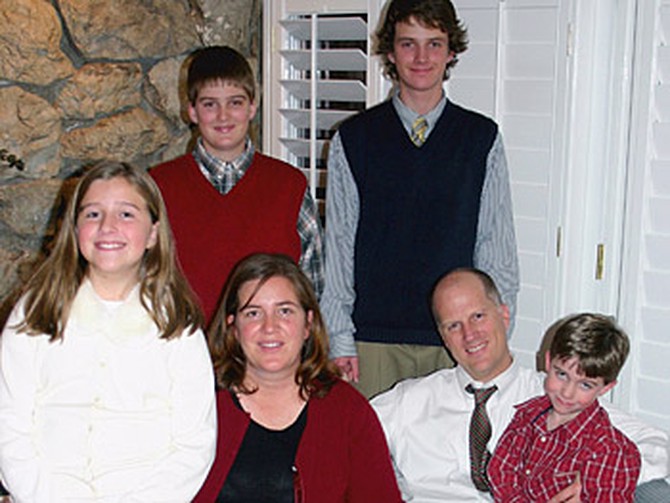
Chris, 42, Salt Lake City, Utah
On February 9, 2007, my family was hit by an allegedly drunk teenage driver, killing my wife who was six months pregnant, my son Benjamin, 11, and my daughter Anna, 9. My son Sam, 6, and I survived the crash. My oldest son Michael, 14, was not with us in the car. Immediately after the impact, I was conscious and able to move enough to check for a pulse on my motionless wife. There was no pulse. I strained to look into the back seat to see my son and daughter sitting by each other, also motionless. I knew immediately in my heart that they had died instantly. I prayed for Sam, but there was no sound from him, nor could I see him as he was seated directly behind me. Amidst my cries of anguish for my wife and children that I had lost, as I waited for medical personnel, I looked through the driver's side window at the overturned SUV that had struck us.
I didn't then know who had hit us, or why they had crossed the median striking our vehicle, but I knew that if they survived, they, too, were going to be devastated by this accident. When I was 16, two young boys ran into the street between parked cars, striking the side of my vehicle. One of the boys died. Although I was not speeding or under the influence in that situation, and never felt I needed to be forgiven for that accident, it has been a significant weight I have carried throughout my life.
My wife had taught me through example the importance of love, gratitude and forgiveness. Now in my moment of extreme trial, as I grieved for my wife and children, I could only think to do that which she would have done, and I completely and without reservation forgave whoever had struck our vehicle. I don't think it is coincidence that as soon as I had made that decision in my mind, I heard my son Sam cry out from the back seat.
Since the accident I now see why my wife exemplified and taught forgiveness. I have felt strength beyond my own as I have sought to cope with this tragedy, even when I learned that the driver was allegedly drunk. That forgiveness has allowed me to understand that I am not strong enough to be angry and to heal at the same time. I am not strong enough to second-guess any decisions made that night, nor shake my hand at heaven and question why, and also move forward and focus on my surviving sons.
In my weakness I have found strength. Through the many tears shed since the accident, forgiveness has filled me with such gratitude for my dear wife and my children. I know the healing has just started and the road ahead for my family is a very long one. Yet having forgiven, I take comfort knowing that the journey is filled with gratitude and love, and that in those wonderful emotions, my wife and I and all our children will live on.
On February 9, 2007, my family was hit by an allegedly drunk teenage driver, killing my wife who was six months pregnant, my son Benjamin, 11, and my daughter Anna, 9. My son Sam, 6, and I survived the crash. My oldest son Michael, 14, was not with us in the car. Immediately after the impact, I was conscious and able to move enough to check for a pulse on my motionless wife. There was no pulse. I strained to look into the back seat to see my son and daughter sitting by each other, also motionless. I knew immediately in my heart that they had died instantly. I prayed for Sam, but there was no sound from him, nor could I see him as he was seated directly behind me. Amidst my cries of anguish for my wife and children that I had lost, as I waited for medical personnel, I looked through the driver's side window at the overturned SUV that had struck us.
I didn't then know who had hit us, or why they had crossed the median striking our vehicle, but I knew that if they survived, they, too, were going to be devastated by this accident. When I was 16, two young boys ran into the street between parked cars, striking the side of my vehicle. One of the boys died. Although I was not speeding or under the influence in that situation, and never felt I needed to be forgiven for that accident, it has been a significant weight I have carried throughout my life.
My wife had taught me through example the importance of love, gratitude and forgiveness. Now in my moment of extreme trial, as I grieved for my wife and children, I could only think to do that which she would have done, and I completely and without reservation forgave whoever had struck our vehicle. I don't think it is coincidence that as soon as I had made that decision in my mind, I heard my son Sam cry out from the back seat.
Since the accident I now see why my wife exemplified and taught forgiveness. I have felt strength beyond my own as I have sought to cope with this tragedy, even when I learned that the driver was allegedly drunk. That forgiveness has allowed me to understand that I am not strong enough to be angry and to heal at the same time. I am not strong enough to second-guess any decisions made that night, nor shake my hand at heaven and question why, and also move forward and focus on my surviving sons.
In my weakness I have found strength. Through the many tears shed since the accident, forgiveness has filled me with such gratitude for my dear wife and my children. I know the healing has just started and the road ahead for my family is a very long one. Yet having forgiven, I take comfort knowing that the journey is filled with gratitude and love, and that in those wonderful emotions, my wife and I and all our children will live on.
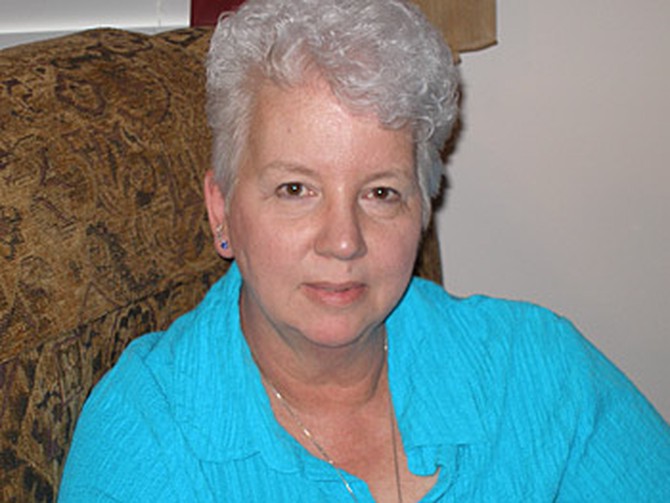
Pamela, 58, Indianapolis, Indiana
On February 24, 2002, my 22-year-old son was killed in a drunk-driving accident. Kyle and five of his friends got into a car after drinking all night in two bars in town. The driver of the car was Nicole, one of Kyle's closest friends and a neighbor who lived around the corner. Less than a half mile from home, the car spun out of control and hit a tree. Kyle and his two friends in the back seat of the 2000 Camaro were killed instantly. The driver, Nicole, and two other passengers received serious injuries.
Even now, five years later, I can feel the pain that I felt when the police and the police chaplain came to the door. I knew something horrible had happened. Much of the next few months is a blur of pain and grief and disbelief. My beautiful, life-loving baby was gone and many lives were changed forever. The true cycle of life does not include burying your child.
Even in that horrible pain, I knew that I would have to somehow reconcile with Nicole and forgive her. This would have been what Kyle would have expected. His huge heart would not have closed to Nicole if he had survived the crash. Had any other of those young people in the car been driving, the same thing might have happened because they had all been drinking excessively. I have never believed that Nicole purposely got in that car to kill three people. I feel that in many ways a society that condones excessive drinking and is too tolerant of underage drinking was complicit in this accident.
Forgiveness is a process and a journey. It comes after long conversations in prayer with God and the healing that time brings to a broken heart. My prayer was always that I would be able to love Nicole and forgive her as Kyle would have done. Nicole was sentenced to six years for each of the deaths in the accident. Those sentences were served concurrently, and she was released from prison after three years. I visited her several times in prison, but that first visit was difficult. There were a lot of tears cried that day, but in the end they were cleansing and healing tears. A great burden was lifted from my heart and I truly began healing then. Today Nicole has turned her life around and is a productive member of her community. She has promised to honor Kyle by bringing her story to other young people in hope that no other families will have to go through the pain we have experienced.
On February 24, 2002, my 22-year-old son was killed in a drunk-driving accident. Kyle and five of his friends got into a car after drinking all night in two bars in town. The driver of the car was Nicole, one of Kyle's closest friends and a neighbor who lived around the corner. Less than a half mile from home, the car spun out of control and hit a tree. Kyle and his two friends in the back seat of the 2000 Camaro were killed instantly. The driver, Nicole, and two other passengers received serious injuries.
Even now, five years later, I can feel the pain that I felt when the police and the police chaplain came to the door. I knew something horrible had happened. Much of the next few months is a blur of pain and grief and disbelief. My beautiful, life-loving baby was gone and many lives were changed forever. The true cycle of life does not include burying your child.
Even in that horrible pain, I knew that I would have to somehow reconcile with Nicole and forgive her. This would have been what Kyle would have expected. His huge heart would not have closed to Nicole if he had survived the crash. Had any other of those young people in the car been driving, the same thing might have happened because they had all been drinking excessively. I have never believed that Nicole purposely got in that car to kill three people. I feel that in many ways a society that condones excessive drinking and is too tolerant of underage drinking was complicit in this accident.
Forgiveness is a process and a journey. It comes after long conversations in prayer with God and the healing that time brings to a broken heart. My prayer was always that I would be able to love Nicole and forgive her as Kyle would have done. Nicole was sentenced to six years for each of the deaths in the accident. Those sentences were served concurrently, and she was released from prison after three years. I visited her several times in prison, but that first visit was difficult. There were a lot of tears cried that day, but in the end they were cleansing and healing tears. A great burden was lifted from my heart and I truly began healing then. Today Nicole has turned her life around and is a productive member of her community. She has promised to honor Kyle by bringing her story to other young people in hope that no other families will have to go through the pain we have experienced.
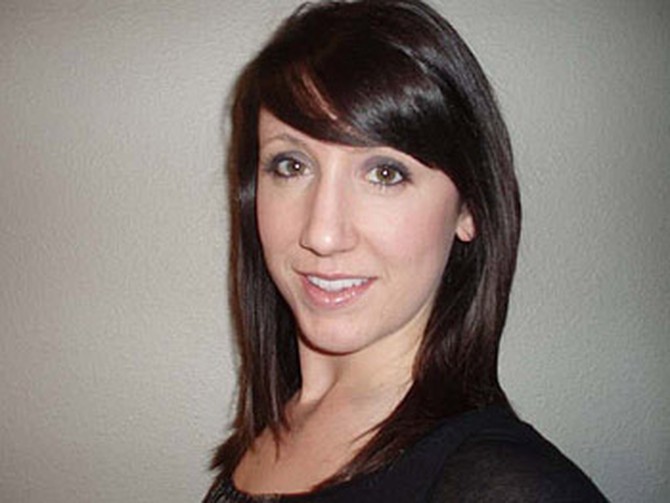
Nicole, 25, Modesto, California
My name is Nicole. I am 25 years old. On February 24, 2002, I was driving my car home from the bar with five friends. We had all been drinking. While driving to our friend's house, somehow I lost control of my car and slammed into a tree, killing my three backseat passengers.
I remember waking up in the hospital, completely unaware of what had happened. Throughout the days that followed, I was informed of the accident and who hadn't made it through the crash. This included two friends and a best friend. I was shocked, ashamed and angry with myself. One of the most difficult things I had to deal with was the forgiveness from others. I had to forgive myself for making such a horrible decision. I had to ask God to forgive me for my decision and for my behavior.
I also wanted forgiveness from the families and friends of the others who were involved in the crash, but I knew this would be the hardest of all.
As time progressed, I was sentenced to six years in a correctional facility for women. In my heart, I wished I had been forgiven by the parents and families of the friends that were killed. However, I knew I hadn't. I prayed they would find it in their hearts to forgive me.
During those years of incarceration, my best friend's mother came to visit me. She had decided to forgive me. This was one of the most incredible feelings, just knowing that she found a place in her heart that urged forgiveness. She sat and talked with me. We cried together and spoke of Kyle, her son who had been killed in my car.
This woman made a difficult decision to forgive me, even when she may not have wanted to. Her forgiveness holds me accountable for a lot of my actions in my life today. I still hope that the other families will somehow find a way to forgiveness. I see how Pam has been able to move forward in a positive way, a healthy way, and I want the other families to experience the same healing. Pam's forgiveness has helped me to move forward in my life as well. She helps me see that I can do good things, and that the choice I made that night does not make me a bad person.
It hurts to know that there are still people who are angry with me. I wish I could tell them my apologies all over again, and that they would hear me. Forgiveness is such an important part of healing. I have found that by forgiving others, it sometimes helps the person who forgives more than the person who is forgiven. Forgiveness between two people can start an amazing relationship, a bond that can make a huge impact on this world.
My name is Nicole. I am 25 years old. On February 24, 2002, I was driving my car home from the bar with five friends. We had all been drinking. While driving to our friend's house, somehow I lost control of my car and slammed into a tree, killing my three backseat passengers.
I remember waking up in the hospital, completely unaware of what had happened. Throughout the days that followed, I was informed of the accident and who hadn't made it through the crash. This included two friends and a best friend. I was shocked, ashamed and angry with myself. One of the most difficult things I had to deal with was the forgiveness from others. I had to forgive myself for making such a horrible decision. I had to ask God to forgive me for my decision and for my behavior.
I also wanted forgiveness from the families and friends of the others who were involved in the crash, but I knew this would be the hardest of all.
As time progressed, I was sentenced to six years in a correctional facility for women. In my heart, I wished I had been forgiven by the parents and families of the friends that were killed. However, I knew I hadn't. I prayed they would find it in their hearts to forgive me.
During those years of incarceration, my best friend's mother came to visit me. She had decided to forgive me. This was one of the most incredible feelings, just knowing that she found a place in her heart that urged forgiveness. She sat and talked with me. We cried together and spoke of Kyle, her son who had been killed in my car.
This woman made a difficult decision to forgive me, even when she may not have wanted to. Her forgiveness holds me accountable for a lot of my actions in my life today. I still hope that the other families will somehow find a way to forgiveness. I see how Pam has been able to move forward in a positive way, a healthy way, and I want the other families to experience the same healing. Pam's forgiveness has helped me to move forward in my life as well. She helps me see that I can do good things, and that the choice I made that night does not make me a bad person.
It hurts to know that there are still people who are angry with me. I wish I could tell them my apologies all over again, and that they would hear me. Forgiveness is such an important part of healing. I have found that by forgiving others, it sometimes helps the person who forgives more than the person who is forgiven. Forgiveness between two people can start an amazing relationship, a bond that can make a huge impact on this world.
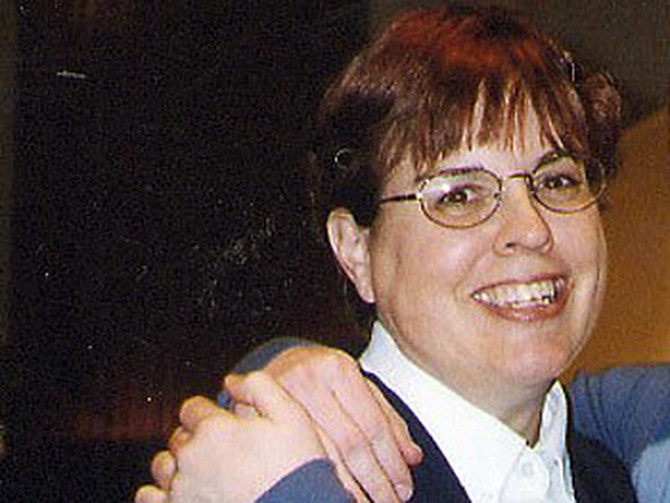
Jackie, 57, Madison, Wisconsin
I was the mother of two sons, whom I loved unconditionally. I was a convention coordinator. I was an amateur photographer. On November 4, 1995, at 4:40 p.m., it all changed.
I was at a friend's house when two boys—ages 15 and 16—had been attempting to steal my car. I walked in on them. They drew their guns on me. They told me to lie on the living room floor, where they shot me in the head and left me for dead!
My friend came back to the house 15 minutes later from trimming trees to find me. He called 911. They sent out an ambulance that took me to Reedsburg Hospital. They did a CAT scan where they learned I had been shot in my head execution-style.
I was flown by MedFlight to the University of Wisconsin Trauma Center. I had 28 lines or IVs in me, two shunts, I was on a breathing machine. I was put in a drug-induced coma. My doctors then went out to talk to my two sons, Chad and Derek, to tell them I only had a 2 percent chance of making it.
After 42 days in a coma, I woke up to the toughest rehab schedule. I had to learn how to sit, stand, walk, talk, swallow, use my left hand, how to eat, how to get dressed, even how to go to the bathroom again. I was in the hospital for three months, and I spent nine months in a brain rehab center.
I met Craig, the boy who shot me, on December 17, 1997. I sat down, and he cried because he thought I would be 100 percent normal. I had no idea who had shot me. He told me right away that he had shot me. It was like my son had told me, and all I could do was hang my head in sorrow. He had apologized to me, I accepted his apology. There was one thing I wanted from him—a hug. Like what a mother and son do is hug. He agreed to hug me. We hugged long and hard, and from that moment on we had a bond, an unspoken bond!
We see each other once a year, we write to each other whenever we want. The first thing he does when he sees me is he hugs me. The last thing he does, he hugs me. It is his way of saying he is sorry and that he loves me. I love Craig. God says we are to love our fellow human being. I don't like what he has done. That is my right, but I love him! I went full circle. I think my forgiveness was right away, but it went full circle the day I met him! I talk to audiences, and I have a letter that Craig wrote to them. It says that he is the young man who shot me, and he lives with it every day. It tells them that they will fall down, but that they will get up. I will always remember that he wished he could take back the bullet the second he fired the gun. But we have an unspoken bond!
I was the mother of two sons, whom I loved unconditionally. I was a convention coordinator. I was an amateur photographer. On November 4, 1995, at 4:40 p.m., it all changed.
I was at a friend's house when two boys—ages 15 and 16—had been attempting to steal my car. I walked in on them. They drew their guns on me. They told me to lie on the living room floor, where they shot me in the head and left me for dead!
My friend came back to the house 15 minutes later from trimming trees to find me. He called 911. They sent out an ambulance that took me to Reedsburg Hospital. They did a CAT scan where they learned I had been shot in my head execution-style.
I was flown by MedFlight to the University of Wisconsin Trauma Center. I had 28 lines or IVs in me, two shunts, I was on a breathing machine. I was put in a drug-induced coma. My doctors then went out to talk to my two sons, Chad and Derek, to tell them I only had a 2 percent chance of making it.
After 42 days in a coma, I woke up to the toughest rehab schedule. I had to learn how to sit, stand, walk, talk, swallow, use my left hand, how to eat, how to get dressed, even how to go to the bathroom again. I was in the hospital for three months, and I spent nine months in a brain rehab center.
I met Craig, the boy who shot me, on December 17, 1997. I sat down, and he cried because he thought I would be 100 percent normal. I had no idea who had shot me. He told me right away that he had shot me. It was like my son had told me, and all I could do was hang my head in sorrow. He had apologized to me, I accepted his apology. There was one thing I wanted from him—a hug. Like what a mother and son do is hug. He agreed to hug me. We hugged long and hard, and from that moment on we had a bond, an unspoken bond!
We see each other once a year, we write to each other whenever we want. The first thing he does when he sees me is he hugs me. The last thing he does, he hugs me. It is his way of saying he is sorry and that he loves me. I love Craig. God says we are to love our fellow human being. I don't like what he has done. That is my right, but I love him! I went full circle. I think my forgiveness was right away, but it went full circle the day I met him! I talk to audiences, and I have a letter that Craig wrote to them. It says that he is the young man who shot me, and he lives with it every day. It tells them that they will fall down, but that they will get up. I will always remember that he wished he could take back the bullet the second he fired the gun. But we have an unspoken bond!
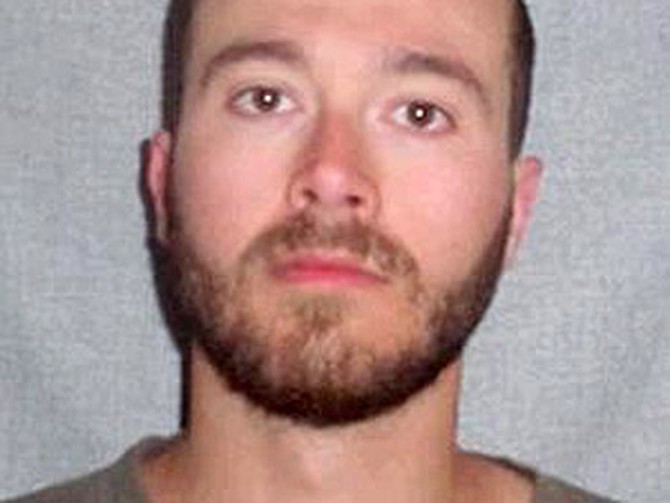
Craig, 28, Reedsburg, Wisconsin
I did many things wrong on that November day when I was just a kid. I made more than one mistake. The largest choice I could make in my life up to today—the poorest decision—took place on a chilly day in the middle of a quiet countryside. It was on this day that I shot Jackie and nearly took her life from her and those that loved her. I had somehow gotten to a place in my young life where I no longer cared about anyone or anything, including myself.
I was obviously troubled, as I don't think an untroubled person could bring themselves to attempt to take the life of a perfectly innocent stranger. Nothing mattered to me. I guess I had felt empty, hollow, lost, without any desire to be found. I had reached a point of limbo and didn't see a way out or reason to get out. I hid it well, though. So well that people around me thought I was a happy kid. I wish I hadn't hidden my pain and confusion. I had no idea it would fester, spread like a cancer and allow me to commit such a horrible act.
I broke into my mother's boyfriend's gun cabinet and a desk to steal some pistols. I entered someone's house with those guns, stole a car, set it on fire and nearly took someone's life that day. All of these things were wrong and are crimes. These weren't my biggest crimes. All of the pain I have caused Jackie and her family, the fear I created in the community, the broken trust people must have felt by my actions. Jackie had to relearn everything and her struggles continue today. Her sons missed out on years of life with their mother as they knew her. There was hate in their hearts because of me. These things were not only the effects of my action, but my biggest ongoing crime.
This is only a very brief glimpse into what I have done, and the reality of what I have done weighs heavily on my heart. So much so I can't or won't allow myself to forgive myself for what I have done. When Jackie forgave me for all that I have done, it made what I have done more bearable. I am still troubled by it at times, of course, but to know I am not hated but forgiven is indescribably important to me. It allows me to see that I am not a monster with no hope for the future. My actions were monstrous but it doesn't have to define me or my future.
Jackie's forgiveness has helped me see that I can define myself and my future. I know that a second chance is possible. Her forgiveness has demonstrated love and love is never too proud to seek forgiveness or too stingy to forgive. It is willing to let go of hurt and letdowns. Forgiveness allows us the opportunity to improve and correct ourselves.
I did many things wrong on that November day when I was just a kid. I made more than one mistake. The largest choice I could make in my life up to today—the poorest decision—took place on a chilly day in the middle of a quiet countryside. It was on this day that I shot Jackie and nearly took her life from her and those that loved her. I had somehow gotten to a place in my young life where I no longer cared about anyone or anything, including myself.
I was obviously troubled, as I don't think an untroubled person could bring themselves to attempt to take the life of a perfectly innocent stranger. Nothing mattered to me. I guess I had felt empty, hollow, lost, without any desire to be found. I had reached a point of limbo and didn't see a way out or reason to get out. I hid it well, though. So well that people around me thought I was a happy kid. I wish I hadn't hidden my pain and confusion. I had no idea it would fester, spread like a cancer and allow me to commit such a horrible act.
I broke into my mother's boyfriend's gun cabinet and a desk to steal some pistols. I entered someone's house with those guns, stole a car, set it on fire and nearly took someone's life that day. All of these things were wrong and are crimes. These weren't my biggest crimes. All of the pain I have caused Jackie and her family, the fear I created in the community, the broken trust people must have felt by my actions. Jackie had to relearn everything and her struggles continue today. Her sons missed out on years of life with their mother as they knew her. There was hate in their hearts because of me. These things were not only the effects of my action, but my biggest ongoing crime.
This is only a very brief glimpse into what I have done, and the reality of what I have done weighs heavily on my heart. So much so I can't or won't allow myself to forgive myself for what I have done. When Jackie forgave me for all that I have done, it made what I have done more bearable. I am still troubled by it at times, of course, but to know I am not hated but forgiven is indescribably important to me. It allows me to see that I am not a monster with no hope for the future. My actions were monstrous but it doesn't have to define me or my future.
Jackie's forgiveness has helped me see that I can define myself and my future. I know that a second chance is possible. Her forgiveness has demonstrated love and love is never too proud to seek forgiveness or too stingy to forgive. It is willing to let go of hurt and letdowns. Forgiveness allows us the opportunity to improve and correct ourselves.
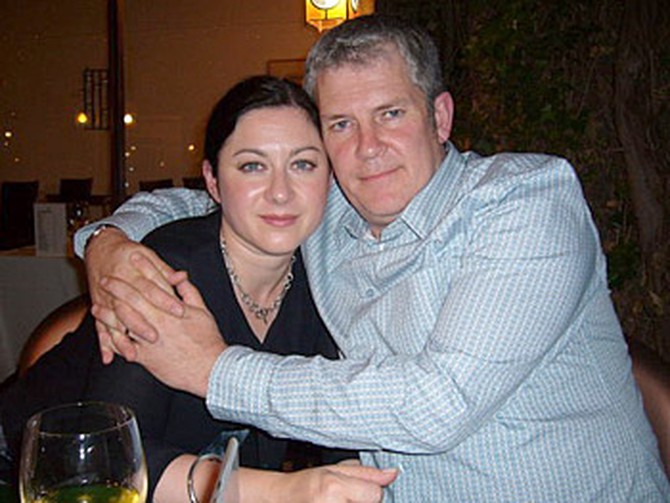
Gil, 38, London, England
Forgiveness for me is about ending a cycle of violence and destruction—it is about peace, both an internal, personal peace and, when practiced on a grand scale, a global peace. It is a sign of strength and maturity.
On July 7, 2005, 26 people died and many were severely injured and maimed on the subway train carriage that I was on. I was standing just feet away from one of four suicide bombers who targeted London's transport network that summer morning. Miraculously I survived, but due to the severity of my injuries, both my legs were amputated during emergency surgery. Doctors held little hope for my survival—fearing that if I did live, I would most definitely have a degree of brain damage, as during the course of my rescue my heart stopped three times, tallying a period of near death and lack of oxygen for approximately 28 minutes.
I am lucky, blessed that there wasn't a long and tortuous struggle or journey to find forgiveness. I woke in intensive care a few days after the explosion—I was euphoric that I was alive, grateful to have life even though I knew it would be a different life. I knew my legs were gone. I didn't know I was involved in a terrorist attack. Joe, my husband, was the first to tell me this. I was shocked, I wanted to know everything about the bomber, I wanted to see a picture of his face, I wanted to look into his eyes. I needed to make sense of it all—I needed to understand why.
I looked at his picture in the newspaper for hours whilst lying in my hospital bed. He was 19 years old, he didn't look like a monster, I didn't hate him—I felt nothing except pity for him. I had other things to think about than him, I had to concentrate on getting my body healed and the long and difficult rehabilitation process of learning to walk on prosthetic legs. There was no room in my mind or my heart for him or for any bitterness or hatred. I was too important, I wasn't going to allow this to destroy me, destroy my soul.
My days were filled with love. I surrounded myself with a glowing peaceful energy—I laughed, I hugged, I was happy to be alive and to share each precious day with the people who I cared about. My forgiveness was an important part of their healing, too. Through my example, they were able to put aside anger and feelings of revenge and retaliation. They were able to bask in the joy of all we did have and not dwell on the things we didn't.
My life, 20 months after the bombings, is very different. I have recently been appointed an ambassador for a charity called Peace Direct, and my work concentrates purely on building peace. I truly believe that humanity can overcome adversity and tragedy, and I truly believe that each and every person can contribute to a more harmonious and tolerant world.
* Gill is the author of One Unknown, and is an ambassador for the United Kingdom-based charity Peace Direct. For more information, visit www.peacedirect.org.
Forgiveness for me is about ending a cycle of violence and destruction—it is about peace, both an internal, personal peace and, when practiced on a grand scale, a global peace. It is a sign of strength and maturity.
On July 7, 2005, 26 people died and many were severely injured and maimed on the subway train carriage that I was on. I was standing just feet away from one of four suicide bombers who targeted London's transport network that summer morning. Miraculously I survived, but due to the severity of my injuries, both my legs were amputated during emergency surgery. Doctors held little hope for my survival—fearing that if I did live, I would most definitely have a degree of brain damage, as during the course of my rescue my heart stopped three times, tallying a period of near death and lack of oxygen for approximately 28 minutes.
I am lucky, blessed that there wasn't a long and tortuous struggle or journey to find forgiveness. I woke in intensive care a few days after the explosion—I was euphoric that I was alive, grateful to have life even though I knew it would be a different life. I knew my legs were gone. I didn't know I was involved in a terrorist attack. Joe, my husband, was the first to tell me this. I was shocked, I wanted to know everything about the bomber, I wanted to see a picture of his face, I wanted to look into his eyes. I needed to make sense of it all—I needed to understand why.
I looked at his picture in the newspaper for hours whilst lying in my hospital bed. He was 19 years old, he didn't look like a monster, I didn't hate him—I felt nothing except pity for him. I had other things to think about than him, I had to concentrate on getting my body healed and the long and difficult rehabilitation process of learning to walk on prosthetic legs. There was no room in my mind or my heart for him or for any bitterness or hatred. I was too important, I wasn't going to allow this to destroy me, destroy my soul.
My days were filled with love. I surrounded myself with a glowing peaceful energy—I laughed, I hugged, I was happy to be alive and to share each precious day with the people who I cared about. My forgiveness was an important part of their healing, too. Through my example, they were able to put aside anger and feelings of revenge and retaliation. They were able to bask in the joy of all we did have and not dwell on the things we didn't.
My life, 20 months after the bombings, is very different. I have recently been appointed an ambassador for a charity called Peace Direct, and my work concentrates purely on building peace. I truly believe that humanity can overcome adversity and tragedy, and I truly believe that each and every person can contribute to a more harmonious and tolerant world.
* Gill is the author of One Unknown, and is an ambassador for the United Kingdom-based charity Peace Direct. For more information, visit www.peacedirect.org.
Published 01/01/2006

